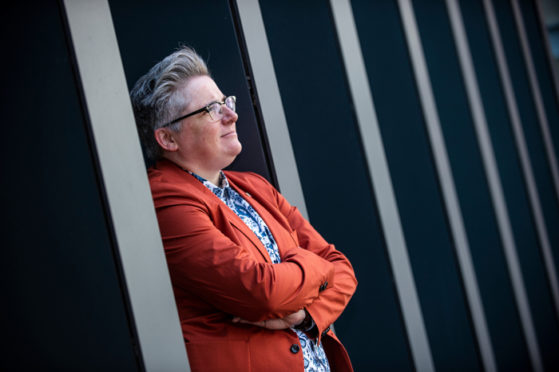Scottish institution working hard to bring balance to banking.
In the 21st century, it should go without saying that the most successful firms are those with the most diverse workforce.
But that isn’t always the case, particularly in the technology sector. While a record number of women are joining the tech sector, there is still a recognised gender imbalance at the top.
Royal Bank of Scotland, which has a clear FinTech focus, aims to address that challenge with an aim to have a fully gender-balanced workforce by 2030. It runs a number of employee programmes to develop the best talent, including the RBS Women Network which was launched in 2017 to attract, retain and develop talented female members of staff.
Research shows that having a decent gender balance is good news for the bottom line. Management consulting firm McKinsey and Co examined more than 1,000 companies across 12 countries and found that firms in the top quartile for gender diversity were 21 per cent more likely to enjoy above-average profitability than their counterparts in the lowest quartile.
It makes sense that a culturally and intellectually diverse workforce is the key to a forward-thinking business as it brings different ages, backgrounds and preferences to the table to help challenge the status quo and develop new and exciting ideas.
But a recent survey by Royal Bank of Scotland, published in a report entitled Scotland’s Tech Future, showed that despite technology becoming increasingly part of our daily lives, four out of 10 Scots feel there are significant barriers for women working in the technology industry.
Of the women quizzed, almost half (46 per cent) agreed these barriers existed, and this rose to almost six in 10 for respondents aged 16-24, the workforce of the future.
Louise Smith, Royal Bank’s Head of Digitisation, Personal and Business Banking, agrees it’s vital that tomorrow’s top tech companies reflect how varied the population has become.
“We need an exciting, diverse mix of skills and people from every background to be involved in innovation because we need a workforce that will fundamentally reflect and understand our customer base,” she says.
According to Skills Development Scotland, the most recent ONS Annual Population Survey shows the number of women in tech has risen from 18 per cent to 23.4 per cent in the last two years, and more than doubled since 2010 from 10,300 to 24,000.
Wincie Wong, Head of Innovation for Supply Chain Services at Royal Bank of Scotland, believes that’s because financial technology, or FinTech, is such an exciting place to work at the moment.
“It’s both breath-taking to witness and a privilege to be a part of the pace and scale of innovation taking place in today’s world,” she says. “There’s much greater transparency within the market and competitors are more able to see what each is doing. FinTech firms are learning from each other’s products, creating an ever-quickening innovation loop where each discovery drives the next.”
The bank prides itself on being a forward-thinking firm with many women in its top tech roles. But while Royal Bank is doing what it can to smash the glass ceiling, Kristen Bennie, head of the bank’s Open Experience, a technology hub based at the bank’s Scottish headquarters in Gogarburn, believes that more must be done to encourage young women to study science and technology and to show them the huge range of exciting careers on offer.
“The biggest barrier still lies in the industry’s ability to inspire women to study and subsequently pursue a career in science and technology,” she states. “As a double arts major myself I came to technology via a more circuitous route from the worlds of branding, design, marketing and advertising.”
Ms Wong, who co-founded Royal Bank’s Girls Can Code employee-led network, wants to see more women in technology and agrees that inspiring future generations is the key: “One of the solutions lies in education; we need to discover how we can inspire more girls and people of different backgrounds (race, age, preferences) to enter into the world of coding. We need to position FinTech as a creative industry and ask ourselves what we can do to show people that technology is more than just something that runs in the background of life.”
For those considering a career in financial technology, all that should matter is curiosity and an open mind, says Kevin Hanley, Royal Bank’s head of innovation.
“The barriers for people looking to do anything in the technology space are far less now than they have ever been,” he says. “Technology is becoming more democratised, cheaper and accessible. It’s an environment that is literally open to all at a cheap price point.
“Our role at Royal Bank is to inspire the curiosity. What will make young minds tick? How do we help them stay curious and interested? When we crack that nut, we’re set.”
To learn more about what the bank is doing, click here.

